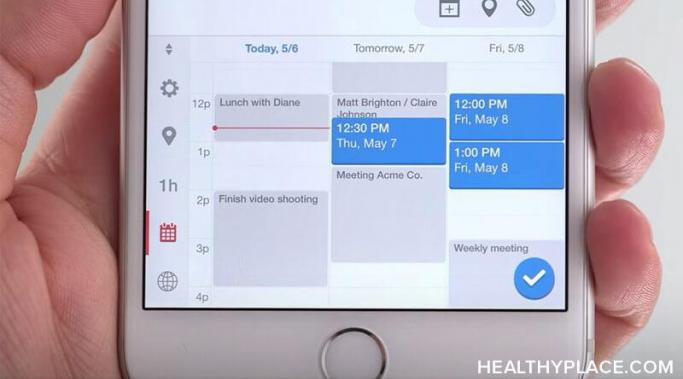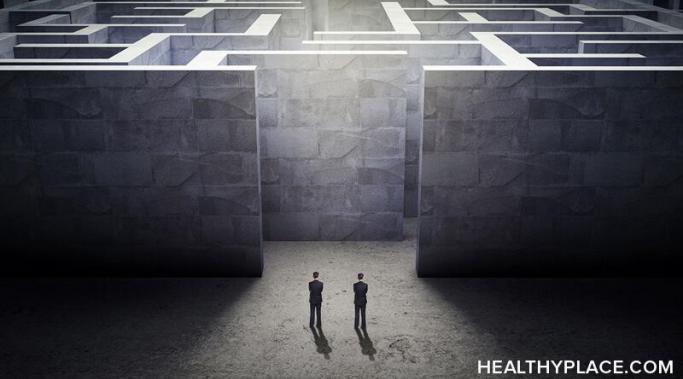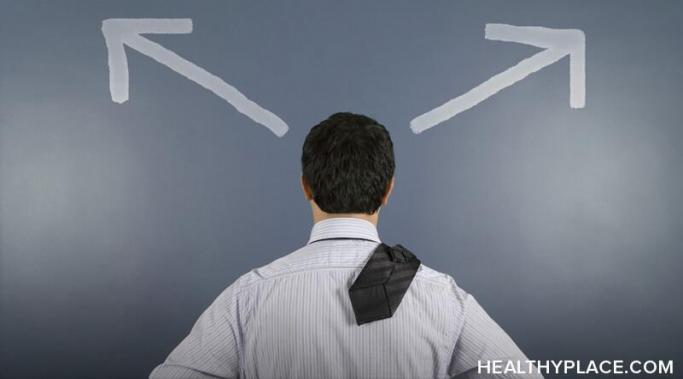Celebrity suicide can take a toll on those who are depressed and that happened to me this week with the suicide of Kate Spade and the suicide of Anthony Bourdain, reported just this morning. I can say I was upset by Kate Spade’s suicide (particularly the details, which I won’t discuss here) earlier in the week and then this morning, when I learned of Anthony Bourdain’s suicide (not an official ruling at this time), it felt like adding insult to injury. The celebrity suicides of Kate Spade and Anthony Bourdain have actually worsened my depression.
Breaking Bipolar
I'm tired of disappointing my loved ones because my bipolar won't improve. I'm tired of looking at my doctor's face as I tell him that the new bipolar treatment isn't really making things better. Their disappointment becomes my disappointment. I feel disappointment in me too. Of course, When bipolar won't improve, disappointment is natural, but it's the disappointing my loved ones that twists the knife.
For many of us, we deal with bipolar disorder every day and it often feels like dealing with bipolar disorder takes up way too much time. I know I spend a significant amount of time thinking about how and doing things to mitigate bipolar’s effects. I have to. It’s how I function as well as I do (however moderate that may be). And when I look at what I get done in a day, it seems painfully clear that dealing with bipolar disorder takes up too much time.
Bipolar depression can last for years. Now, I know, bipolar disorder is a cyclical illness – i.e. you cycle through various states like hypomania, mania, depression and euthymia (no symptoms). This is true. But it is also true that a person can get trapped in one of the mood states. This isn’t necessarily the most common manifestation of bipolar disorder, but it does happen. And usually, if you’re trapped in a particular mood state, it’s bipolar depression that lasts for years.
Rumination in depression (both unipolar and bipolar depression) is common, and it is typically a negative thing. Doctors will ask about ruminations as will therapists; but what is rumination and how do you handle rumination in depression?
Unfortunately, it is the case that bipolar coping skills can sometimes stop working. This echoes the unpleasant experience of many with medications that can stop working due to tolerance. One doesn’t develop a physical tolerance to a coping skill, but sometimes changes in life or treatment can cause a bipolar coping skill to stop working. Here’s how to handle it when you rely on a bipolar coping skill that just stops working.
Attempting to accomplish big goals when you have bipolar disorder can end very badly. I know this; it has happened to me. But some big tasks must get done. Sometimes we have to move halfway across the country. Sometimes we have a six-month-long project for work. Sometimes we have to raise a child. Big goals don’t go away just because a person has bipolar disorder. So here are some tips I’ve learned on how to accomplish big goals with bipolar disorder.
It can be challenging to be a friend of a person with bipolar disorder. I freely admit this. I know that my life is difficult for me to deal with and, certainly, it can be difficult for anyone else. Nevertheless, friendship with a person who has bipolar disorder can be just as rewarding as any other friendship.
I likely don’t need to tell you bipolar depression is hard, and I probably don’t need to tell you concerted effort – trying hard – is difficult, too. But the thing is, bipolar depression management (or bipolar management in general) requires trying hard all the time. The effort of this is not something to be underestimated. This is a tall order. Trying hard with bipolar depression requires such energy and focus it feels impossible to do it all right all the time in spite of the need to do it constantly.
The opposite rule is a rule some people with bipolar disorder or another mental illness use to help deal with the unhealthy parts of a mental illness. It’s actually a really useful rule and I use it a lot as a bipolar coping skill. Here I tell you how and why to use the opposite rule if you have bipolar disorder or another mental illness.









